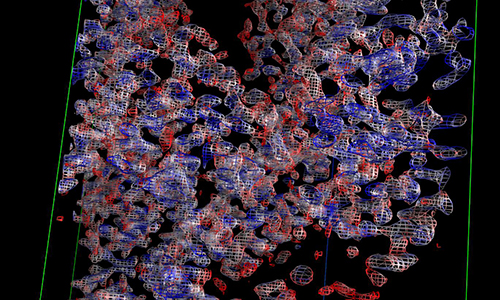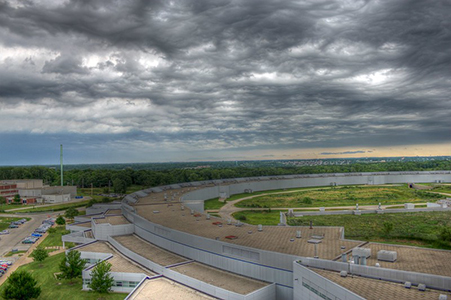Many drug discovery projects benefit from structural information. For example, an X-ray crystal structure of a lead compound bound to a target protein can give clues for the rational design of improved lead compounds.

The Laboratory for Structural Biology Support within the MIDD has been established to help provide structural biology expertise for the advancement of drug discovery projects in a collaborative manner. The Laboratory contains all of the equipment required for protein expression and purification, routine molecular biology (e.g. gene cloning and mutagenesis), single-crystal macromolecular crystallography, and enzyme kinetics. This equipment includes an Eppendorf 5430R refrigerated microfuge, an Eppendorf 5810R refrigerated tabletop centrifuge, two New Brunswick I-26R refrigerated shaking incubators, a Beckman-Coulter Avanti J-E refrigerated high-speed centrifuge, and two GE Lifesciences Akta Purifier FPLC systems. One Akta Purifier is equipped with automation kits for buffer and column selection, allowing for quick and efficient method optimization. A Shimadzu UV-2600 UV/visible spectrophotometer with temperature control is present for protein characterization and steady state enzyme kinetics (or inhibition) experiments. An Agilent Infinity 1220 Compact HPLC equipped with an autosampler, variable wavelength detector, and evaporative light scattering detector (ELSD) is available for rapid analytical size exclusion. For observation of crystallization experiments, we have a high-performance Leica M205 stereo-zoom microscope equipped with a digital camera. The facility also contains a Rigaku Desktop Minstrel UV automated microscope. This unit automatically scans and records the results of crystallization experiments under both visible and UV illumination, which aids in identifying false positive results (i.e. salt crystals).

The Advanced Photon Source at Argonne National Laboratory is only 90 minutes from UWM, and X-ray diffraction data are routinely collected on the Life Sciences Collaborative Access Team beamlines (21-ID-D/F/G). The Silvaggi lab subscribes through the General User Proposal system, which provides ample access to the X-ray beam.
For pre-steady state enzyme kinetics studies, a TgK Scientific SF61-DX2 double-mixing stopped-flow instrument. This unit includes both diode array and photomultiplier-based detectors for transient- and steady state kinetic analysis. The SF61-DX2 is also capable of measuring total fluorescence, which can be used to determine the discrete on and off rates for the binding of substrates and/or inhibitors. It is connected to a dedicated PC equipped with the control software (Kinetic Studio) as well as data analysis software (KaleidaGraph, SpecFit). A Schlenk line and all necessary glassware are available for performing experiments under anaerobic conditions.